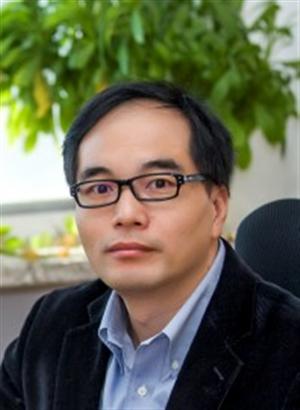骆军委,博士,研究员,博士生导师。
现任半导体芯片物理与技术全国重点实验室主任,计算材料和器件研究组组长。分别于2000年和2003年在浙江大学物理系获得学士和硕士学位,2006年在中国科学院半导体研究所获得博士学位。2007-2014年在美国可再生能源国家实验室先后担任博士后(合作导师为著名固体物理学家Alex Zunger教授)、研究员和资深研究员。2014年02月进入中国科学院半导体研究所半导体超晶格国家重点实验室工作。2015年至今为中国科学院大学岗位教授。2019年获得国家杰出青年基金,2021年获得中国科学院首批稳定支持青年团队资助。担任国家重点研发计划“物态调控”专项总体专家组成员和国家基金委十四五和中长期物理学科战略规划秘书组成员。
长期从事后摩尔硅器件的前沿半导体物理研究,取得了系统性创新成果,包括提出的免于退极化效应的光学声子软化新理论为突破半导体器件功耗瓶颈带来新希望(纯理论的成果发表在Nature上),为解决硅基发光难题设计出高效发光Si/Ge超晶格并提出掺杂应变锗直接带隙发光的硅基发光原创方案,解释半导体形成直接带隙或间接带隙的统一理论已被广泛采用,提出了被认为将改写教科书的隐藏自旋极化新理论,启发了众多新隐藏物理的发现,提出了解决硅晶体管接触电阻瓶颈问题的理论方案等。已发表论文120余篇,包括以第一或通讯作者发表在Nature(1篇)、Nature Physics (1篇)、Nature Nanotechnology (1篇)、Nature Communications (4篇)、PRL (7篇)等,论文总引用5500余次,单篇最高引用580次,14篇论文引用超过100次。在APS、ACS、E-MRS等重要国际会议上作邀请报告或分会主席,担任32届半导体缺陷国际会议和22届多元化合物国际会议共同主席。与美国、英国、德国、瑞士等多个知名课题组开展国际合作和联合培养博士生。
主要研究兴趣:
l 先进节点硅晶体管中的前沿半导体物理;
l 面向硅基光电子集成芯片的硅基发光理论与材料;
l 面向硅基量子计算的硅锗量子比特材料与器件;
l 新能源技术中的关键半导体物理问题。
部分在研项目:
l 国家杰出青年基金项目(主持),国家基金委,2019-2024
l 硅基发光理论及材料创制与应用(主持),中国科学院稳定支持基础研究领域青年团队计划,2021-2026
联系方式:
E-mail:jwluo@semi.ac.cn
电话:010-82304019
近期代表性论文:
[1]Feng-Wu Guo, Wen-Hao Liu, Zhi Wang, Shu-Shen Li, Lin-Wang Wang*, and Jun-Wei Luo*, Photoinduced hidden monoclinic metallic phase of VO2 driven by local nucleation, Nature Communications 16, 94 (2025).
[2]Ruyue Cao, Qiao-Lin Yang, Hui-Xiong Deng*, Su-Huai Wei*, John Robertson, and Jun-Wei Luo*, Softening of the optical phonon by reduced interatomic bonding strength, Nature 634, 1080 (2024).
[3]Lin-Ding Yuan, Shu-Shen Li, and Jun-Wei Luo*, Direct bandgap emission from strain-doped germanium, Nature Communications 15, 618 (2024).
[4]Wen-Hao Liu, Yu-Xiang Gu, Zhi Wang, Shu-Shen Li, Lin-Wang Wang* and Jun-Wei Luo*, Origin of Immediate Damping of Coherent Oscillations in Photoinduced Charge-Density-Wave Transition, Phys. Rev. Lett. 130, 146901 (2023).
[5]W.H. Liu, Jun-Wei Luo*, S.S. Li, L.W. Wang*, The seeds and homogeneous nucleation of photoinduced nonthermal melting in semiconductors due to self-amplified local dynamic instability, Science Advances 8, 4430 (2022).
[6]H.W. Liu, W.H. Liu, Z.J. Suo, Z. Wang, Jun-Wei Luo*, S.S. Li, and L.W. Wang*, Unifying the order and disorder dynamics in photoexcited VO2, PNAS 119, e2122534119 (2022).

